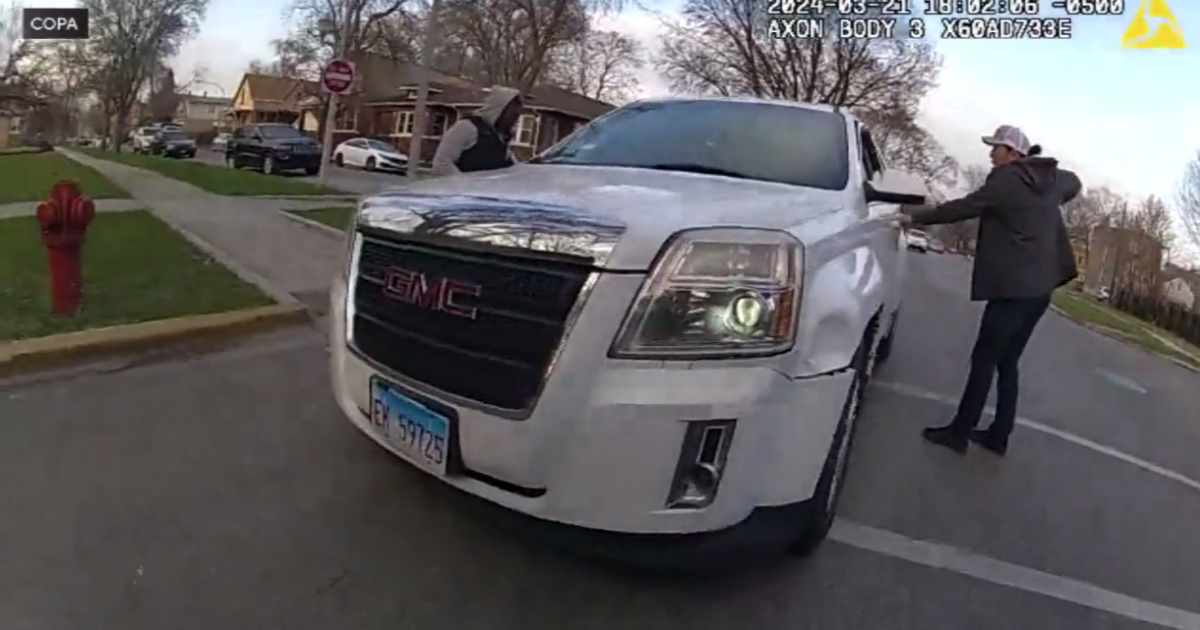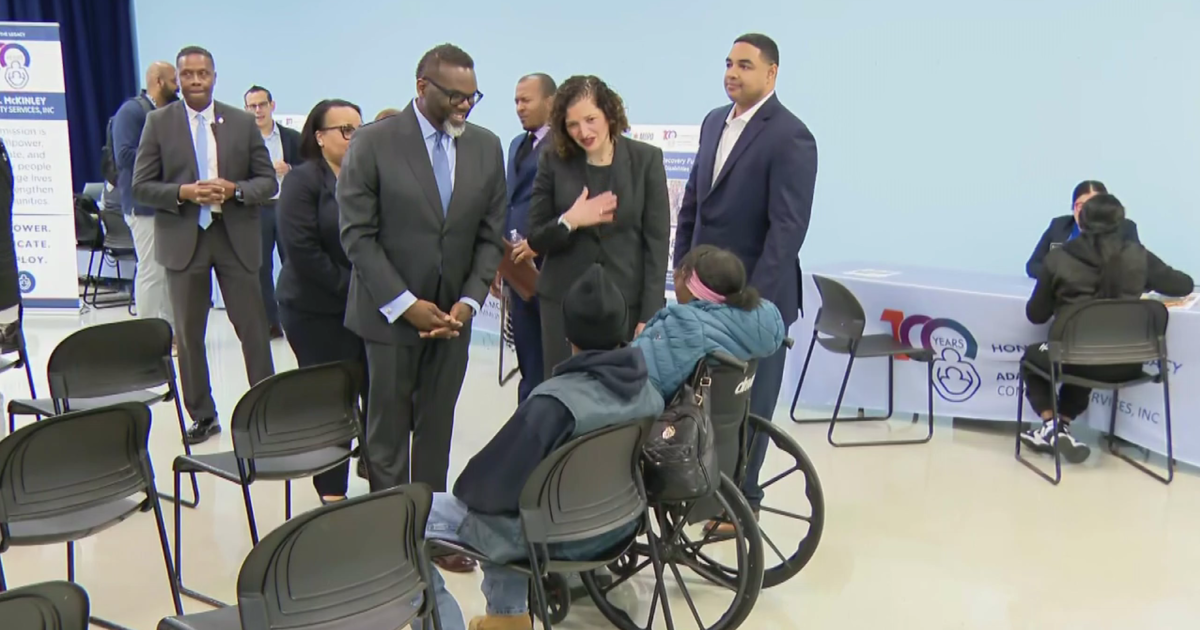Hearing Officer To Rule On NATO Protest March Route By Week's End
Updated 03/27/12 - 6:37 p.m.
CHICAGO (CBS) -- After listening to a full day of testimony, a city hearing officer has told anti-war protesters planning a major rally during the NATO summit in May that he will have a decision by later this week on their appeal of the city's denial of their preferred march route.
The protesters' appeal of the city's decision to deny their request to march on State Street and Michigan Avenue on the opening day of the NATO summit is a longshot, and the protesters know it.
CBS 2 Chief Correspondent Jay Levine reports a small switch by the city is a big deal for demonstrators.
They showed up for the hearing, hoping the city would reconsider its denial of their parade permit. The city had approved a permit for the same route on May 19, during the G8 summit, which has since moved to Camp David, but denied that route for May 20, on the first day of the NATO summit.
"If you wanna stay with the original application? No problem," Mayor Rahm Emanuel said Tuesday. "Change the date? The destination doesn't change, the route does to accommodate, given the fact that you have about 150 dignitaries that you have to move."
That original application called for a rally at Daley Plaza, followed by a march east to State Street, south to Harrison Street, east to Michigan Avenue, south to Cermak Road and east to McCormick Place.
When the protesters sought to change the date of their march, city officials rejected using the same route, instead telling protesters they could move the rally to Butler Field in Grant Park, which could accommodate ten times as many people as Daley Plaza.
The city's alternate plan would also change the march route. From Butler Field, the city's proposed route would take protesters south on Columbus Drive to Congress Parkway, west to Michigan Avenue, south to Harrison Street, west to State Street, south to Cermak Road, then east to McCormick Place.
"It's silly. We had a nice permit. All they had to do was change it to next day," said Ronald Schupp of the Coalition Against NATO. "Why make potential federal case out of this? Why not just let us have our permit, have our peaceful march, and go home?"
Protest organizer Andy Thayer said the city's alternative was unacceptable, because it does not provide them the same visibility they would get by marching in the Loop.
"We think that the city forcing the marchers out of the Loop area – where most people in Chicago might be shopping and so forth on a Sunday afternoon or a Saturday afternoon – that really diminishes the First Amendment impact that we're looking for," Thayer said.
Police Supt. Garry McCarthy called protesters' complaints that the city is trying to diminish their First Amendment right to protest "absurd."
In an opinion that led to the denial of the new permit, the Chicago Department of Transportation said the planned protest march through the Loop would "substantially and unnecessarily interfere with traffic" if it were held on that Sunday.
In a letter denying the application for a march that was sent to Thayer, assistant transportation commissioner Mike Simon wrote that there wouldn't be "sufficient number of on-duty police officers, or other city employees authorized to regulate traffic," on that Sunday.
However, McCarthy said police would have been able to handle the protest using the route the protesters wanted, but the city's proposal was easier for the city to manage traffic control and security. He said the city never suggested it could have handled the protest march on Saturday, but not on Sunday.
"The police department did not say that. That's what I keep saying," McCarthy said. "It would put an extreme stress on our resources, but we never said that we couldn't handle it."
One of McCarthy's deputies testified the reasons for the route switch included prospects of more protestors than the original estimate of 5,000; needing to escort 50 motorcades for NATO dignitaries, rather than eight motorcades for the G8 summit; and more traffic because the Cubs and White Sox play a day game on May 20, as opposed to a night game on May 19.
Motorcades shuttling 5,000 summit attendees — including 50 heads of state — would create "significant traffic impediments which would be exacerbated by the proposed 2.64-mile parade route," Simon wrote, warning that there wasn't enough manpower to police the summit and the protest while adequately covering the rest of the city.
The decision by the city appears to stem, not from fear the police department wasn't up to the task, but from concern about traffic gridlock caused by the motorcades and protest parade.
City officials were also worried about the potential for damage from an expanding protest if it were confined to the glass and concrete caverns of the Loop. The city hopes that moving the protest march to the city's customary Grant Park parade route will relieve some of the pressure.



